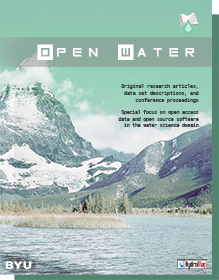Article Title
Local Water Management Practice of Farmers for Irrigated Agriculture in Coastal Region of Bangladesh
Keywords
Water Storage and Uses, Irrigation, Practice, Coastal Bangladesh
Abstract
The agricultural system of coastal regions of Bangladesh is heavily dependent on environmental factors such as the timing, intensity and distribution of the monsoon, soil salinity and the availability of freshwater for irrigation. This study explores and documents the farmers’ practices of innovative approaches to fresh water storage and uses in the agriculture and irrigation in the coastal regions of Bangladesh. The study was mostly qualitative in nature but some quantitative primary data were collected based on the study objectives. Primary data were collected through in-depth individual interviews, group discussions, focused group discussions and key informant interviews. The data collection for this study was carried out in the Bajua and Laodob union of Dacope upazilla of Khulna district. This study found that the mainstay of the economy of the study areas is agriculture (51.67% for the Bajua and 50.43% for the Laodob union) and bulk of the local population is dependent on farming. The study found that in 2009 the shrimp farming is being stopped in the study areas by collective efforts of villagers, local political leaders and different NGOs. These areas are now affected by severe water scarcity problems and due to lack of water sources and the increasing salinity, the people in the study areas cultivate rice (Aman) once a year, but now produce robi crops in the summer season. Farmers depend mainly on rainwater, canals, ponds and rivers. It noted that groundwater for irrigation using deep tube wall is failed in the study areas because groundwater lever has already gone very down. This study explored that the increasing salinity, lack of water sources, with temperatures rising, the recurrent natural extremes are impacting on agriculture intensifying the vicious cycle of hunger and poverty are becoming more frequent especially in the summer season. It is interestingly noted that the farmers in the study areas dig small/ mini ponds beside agriculture land during rainy season for storing freshwater which are used in summer season for irrigating robi crops because in summer season, the salinity increases in soil and water and, canal and river become silted. This study revealed that because of high salinity in groundwater and surface water, the people of the study areas use rainwater collecting it in the rainy season and storing it for use during the dry season. However, within a short period, insects begin to breed and nuisances created in the water which affects the quality of water using for irrigation and drinking. To prevent this from happening, some people keep two or three Kai fish (Climbing Perch) in the container to eat insects and keep the water clean and, free of nuisances. This study also importantly noted that to keep the stored rainwater free from any nuisances, some people of the study areas place a paste made from two or three pieces of raw turmeric wrapped in a clean cloth into the water container. They use this as herbal repellant in the form of turmeric in order to keep stored rainwater free of pollution. Communities developed these practices out of necessity and these practices are not tested scientifically, but people believe in their efficacy.
BYU ScholarsArchive Citation
Bahauddin, Khalid Md. and Bhuyan, Mohammad Touhidul Islam
(2020)
"Local Water Management Practice of Farmers for Irrigated Agriculture in Coastal Region of Bangladesh,"
Open Water Journal: Vol. 6:
Iss.
1, Article 4.
Available at:
https://scholarsarchive.byu.edu/openwater/vol6/iss1/4
